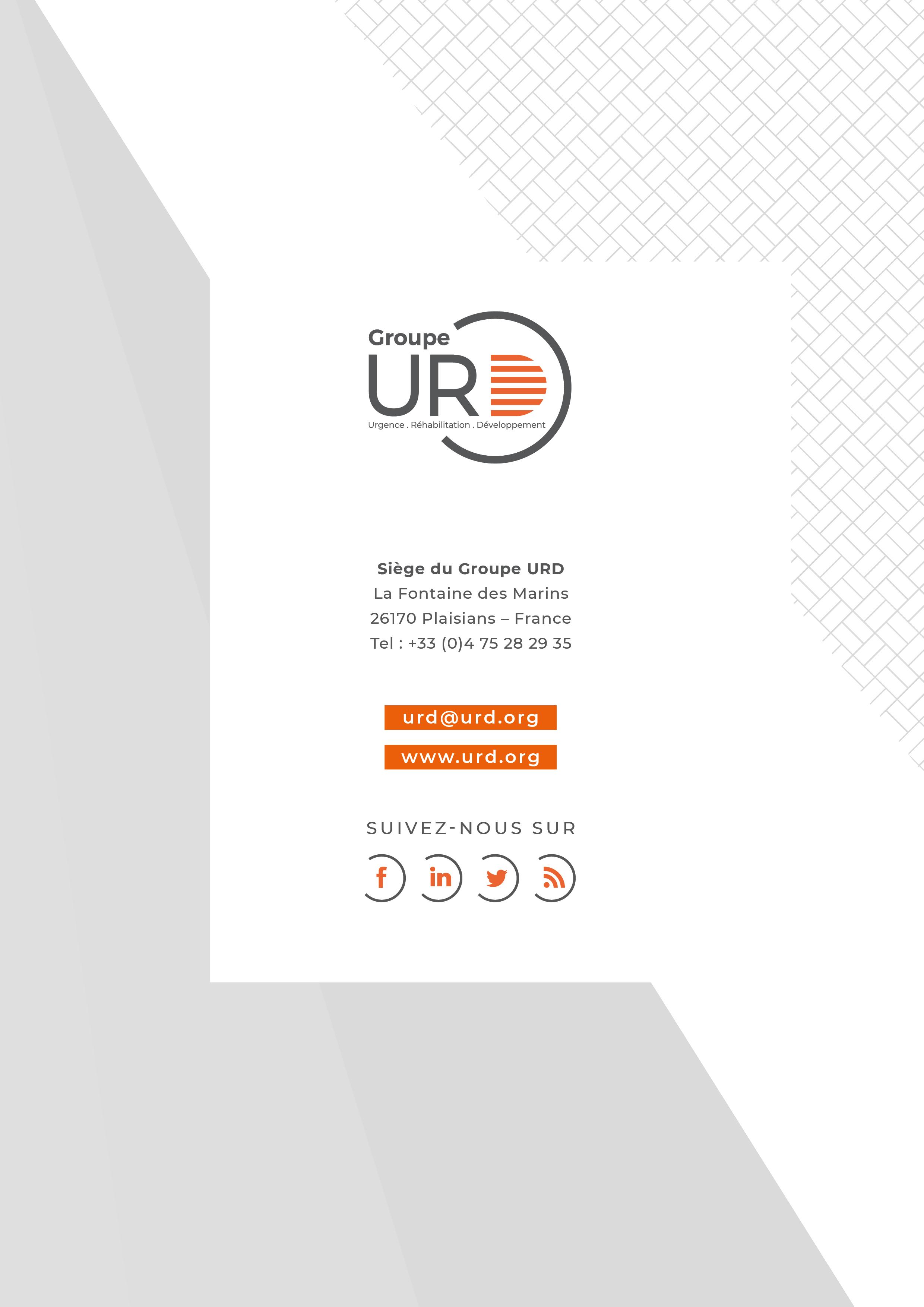
4 minute read
2. METHODOLOGY AND LIMITATIONS
2.1. ANALYSIS FRAMEWORK AND KEY QUESTIONS
Firstly, each context is analysed in terms of politics, conflicts, economic aspects, the capacity of national institutions, the level of decentralisation, etc. This is essential to contextualise programmes, the constraints affecting them and their possible impacts. The analysis then focuses on the programmes and any lessons that can be drawn from them.
The learning process involved a participatory approach, with several exchange and feedback sessions and the co-construction of recommendations.
The review, collected information from a variety of sources, including quantitative data and qualitative information to respond to the following three key questions:
• Key Q 1: What has been the impact of COVID-19 on DEC Member Charities (as organisations) and their operational environment (context and needs)? • Key Q2: What measures have already been taken or still need to be taken to adapt to the new working environment? • Key Q3: What lessons and innovative ideas in each country can help to prepare Phase 2, and which can be of use to DEC Member Charities more broadly, and to the DEC Secretariat in their efforts towards accountability. 2.2. SOURCES AND TOOLS
The team collected information via: - A desk review of relevant literature, evaluations and data sources provided by the DEC secretariat and gathered at country and global levels3; - Global-level interviews with key stakeholders from DEC Member Charities; - Country- and field-level interviews with relevant stakeholders including field staff, local partners, government entities, local authorities, and international aid agencies; - Discussions with affected people; through individual interviews with local Key Informants (village chiefs, local health responders, etc.), and focus group meetings (organized in a way that allowed gender disaggregated information to be collected). It is very important that the views of the population are taken into account in the Response Review. The means of identifying participants for these groups was jointly decided between Groupe URD and DEC Member Charities and their local partners to ensure that they were representative; - Direct observation of programme activities; - A survey of relevant stakeholders at the global / headquarters level.
The information collected and analysed falls into four categories: - Global issues behind the DEC COVID-19 Appeal (timing, discussions with main medias, difficulties in front of this specific situation and its uncertainties)
3 The DEC team already gave the review team access to Covid 19 appeal background information and projects documentation via a tailored access to Box.
- General information about the COVID-19 pandemic in each of the countries concerned (time of first detection, information about virus circulation, measures taken by the national authorities) - Specific information linked to the different projects (duty of care, health-specific responses, the adaptation of existing projects, projects addressing new issues) in terms of population targets and accountability mechanisms (towards population and local authorities), adaptative management, etc. - Key lessons and adaptations that have been recorded by each of the DEC Member Charities in their operations.
2.3. CHALLENGES AND CONSTRAINTS
The situation in South Sudan is challenging for aid actors, as it was for the team undertaking the review.
Access constraints: Access was already difficult in South Sudan before the pandemic due to long distances, the difficulty of gaining access to humanitarian flights, rainy season conditions, conflict and insecurity. The combination of the conflict and the pandemic made this even more challenging. Field visits and interaction with communities were therefore limited thus affecting the quantity and quality of information gathered and the capacity to analysis it.
Limited involvement of affected people. While the review tried to gather feedback from communities about programmes and about their priority needs, the involvement of affected people was limited, due to access constraints. This is where national consultants, with the help of DEC Member Charities’ field staff, proved extremely useful.
Information gaps / problems of data quality / no generation of new data. The review team collected and compiled relevant available information. But situations and trends can evolve quickly. Numerous unknown factors remain regarding the way the virus spreads and the most effective way to prevent it from spreading and to treat infected people. Qualitative information has been prioritized as it is often best suited to identifying difficulties, challenges, solutions and good practices.
Time constraints / no in-depth evaluations: Time dedicated to this Real-Time Response Review was limited. The main findings/lessons learned and recommendations had to be shared in advance in order to be incorporated into Phase 2. The team conducted seven country studies, prepared stand-alone short country reports (10 to 20 pages + annexes) with country-specific lessons learned and recommendations. However, the country studies were conducted with the aim of informing a review of the overall approach and to facilitate rapid learning on DEC-funded programmes in the context of a wider response to a global crisis. Given the limited timeframe, it proved to be a challenge to cover diversity properly (gender, age, social fabrics, disability, etc.) and other cross-cutting issues.



